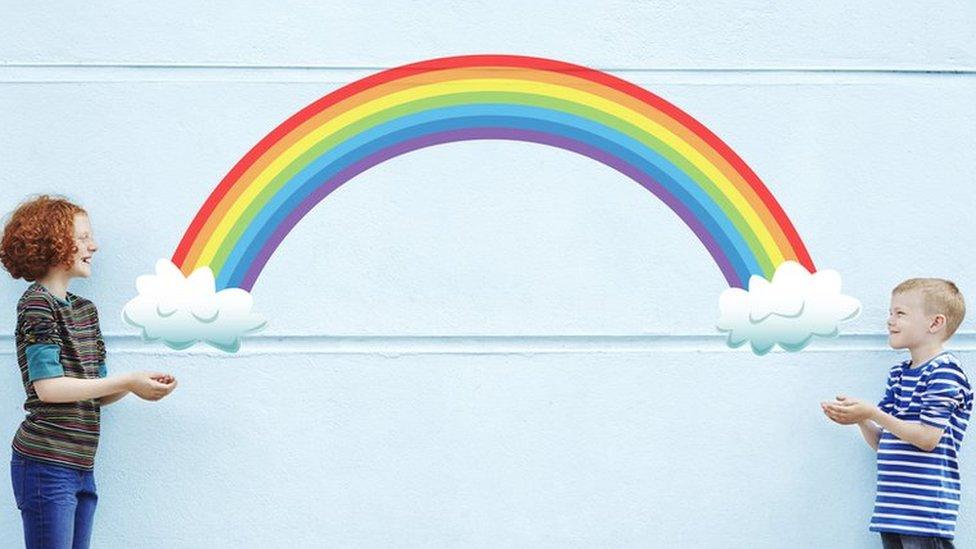Coronavirus: How the rules are changing in the UK on 19 July
- Published
- comments
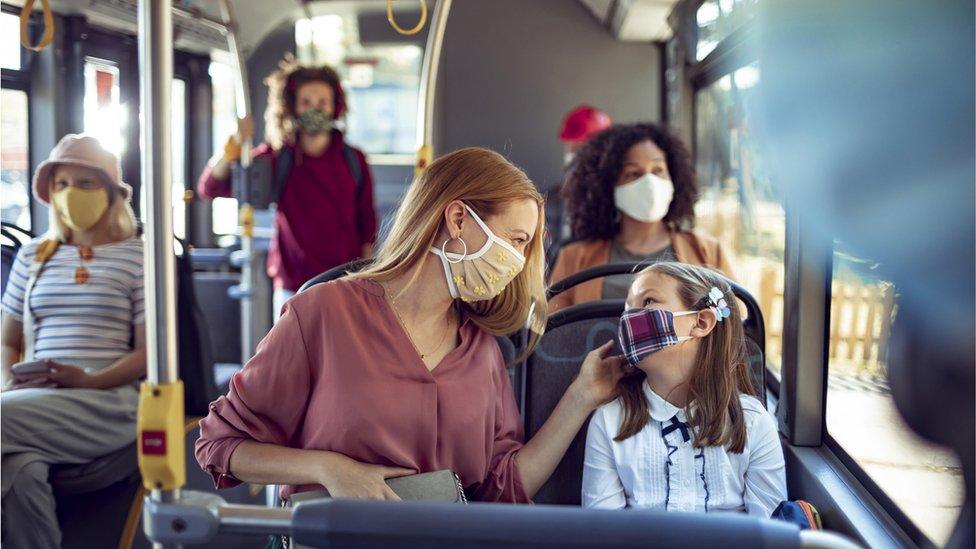
Big changes are happening to England and Scotland's Covid restrictions on Monday 19 July.
Prime Minister Boris Johnson announced the plans for England's final steps out of lockdown on 6 July, and Scotland's First Minister Nicola Sturgeon has announced that Scotland would be moving to level 0 from 19 July.
The plans include things like ending the legal requirement to wear face masks in England and removing the rules on social distancing.
Changes also took place in Wales on 17 July, and Northern Ireland are set to ease rules on 26 July.
The prime minister has also warned: "We cannot simply revert instantly from Monday 19 July to life as it was before Covid."
Find out more about the changes below and how they affect you.
Changes in England
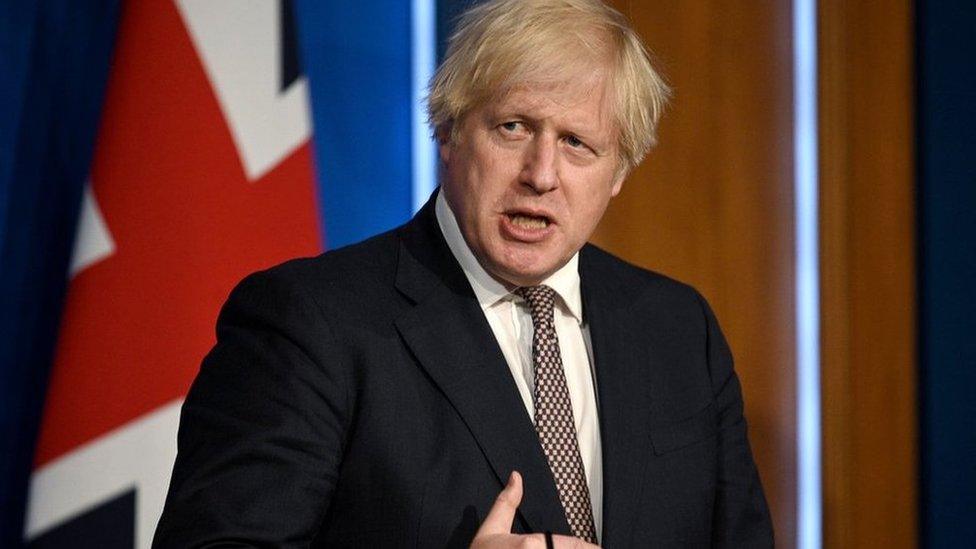
Prime Minister Boris Johnson announced the changes earlier in July
Here's how the rules will change for England on July 19:
Face masks will no longer be legally required (although they will be encouraged on public transport or in some shops)
The 1m-plus social distancing rule will end
All legal restrictions on numbers meeting indoors and outdoors will be removed (including weddings, funerals and places of worship)
All businesses, including nightclubs, can reopen
Table service rules at bars and restaurants and venue check-in requirements will be scrapped
The limit on the number of named visitors to care homes will be lifted
Capacity limits for concerts, theatres and sports events will also be removed
Guidance instructing people to work from home where possible will be lifted
In his speech, Boris Johnson stressed that the pandemic is "far from over and won't be over by 19 July".
Some Covid-19 protection measures, such as wearing masks in enclosed places, may continue but it will be up to individual people to decide whether or not they want to wear one. Although some shops and transport operators will still require masks to be worn.
What about school?
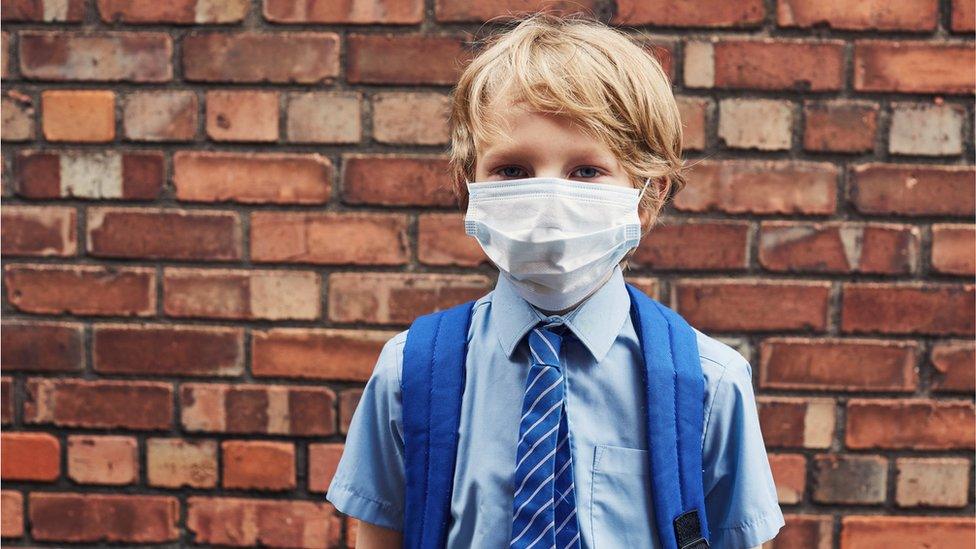
From 19 July, staggered start and finish times will no longer be necessary (although they may continue until the end of the summer term), and school bubbles will also come to an end.
Face coverings will also no longer be needed and social distancing will no longer be necessary.
From 16 August, under-18s will only have to self-isolate if they test positive for Covid.
Changes in Scotland
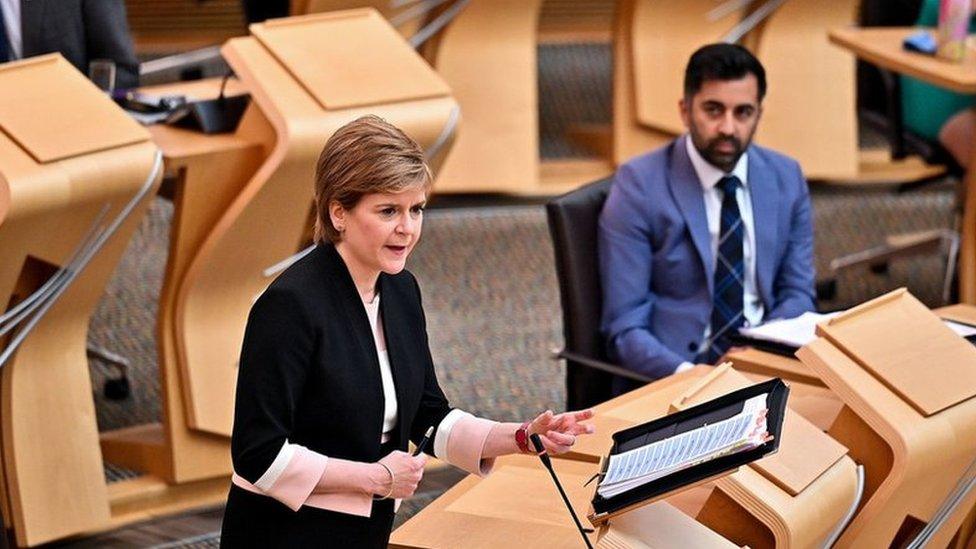
First Minister Nicola Sturgeon announced the rules
Here's how things will change in Scotland from 19 July:
In level zero, up to eight people from up to four households can meet indoors at home - compared to six people from three households in levels 1 and 2
Up to 10 people from up to four households can meet in a public indoor space
And up to 15 people from up to 15 households can meet outdoors - whether in a private garden or public place
Children under 12 already don't count towards the total number of people. From Monday, they will not count towards the total number from different households either
Masks will have to be worn in cafes and restaurants when not seated or eating.
In level 0 up to 200 people can attend weddings and funerals
Soft play centres can open.
Capacity at events and stadiums can increase to 2,000 seated and 1,000 standing guests outdoors, and 400 indoors
A "gradual" return to office working was due to be part of the move to level zero, but this has now been put back to 9 August
The government is also considering removing self-isolation rules for school pupils.
Changes in Wales
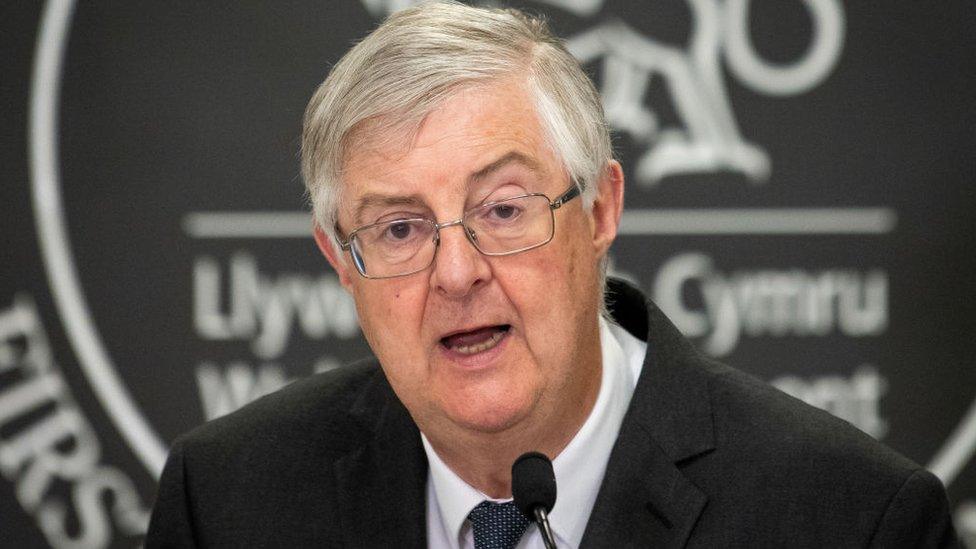
First Minister Mark Drakeford made the announcement
Wales moved into Alert Level 1 on 17 July, here's what changed:
Up to six people can meet indoors in private homes, restaurants and holiday accommodation
Organised indoor events can take place for up to 1,000 seated and up to 200 standing
Ice rinks can reopen
No limits on how many people can meet outdoors in public places, or at events
People over 12 still need to wear masks in shops, public transport and other indoor settings
The government hopes to move to Alert Level 0 on 7 August. Which would mean there are no legal limits on the number of people who can meet indoors, and all shops and businesses including nightclubs can open.
Face coverings will continue to be required in most indoor public places and on public transport for the present time.
Changes in Northern Ireland
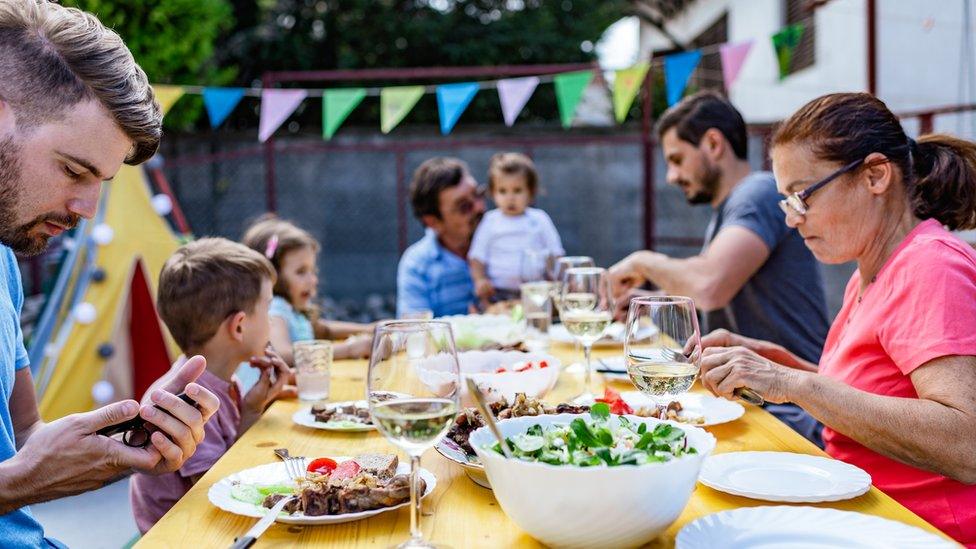
For Northern Ireland, restrictions will be eased on 26 July, if they are approved in a review on 22 July.
10 people from three households are able to meet inside a private home
15 people are able to meet in a private garden
Social distancing reduced to 1m indoors and removed for outdoor activities (although 2m distance still recommended)
Theatres and other indoor seated venues will be able to reopen
Live music indoors with no restrictions on sound levels
- Published6 April 2022
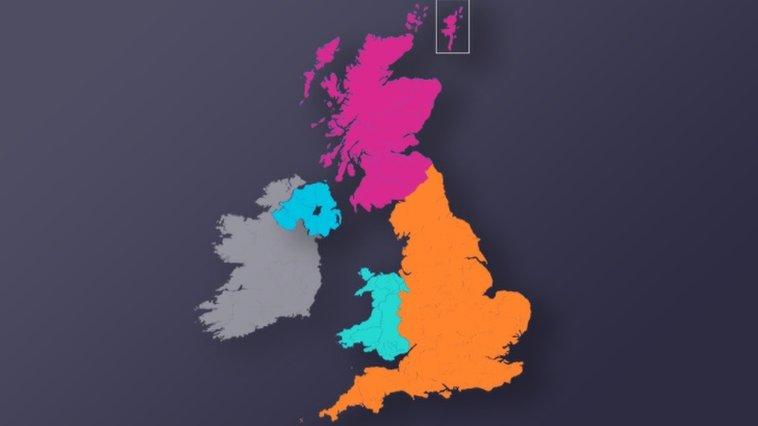
- Published4 June 2021
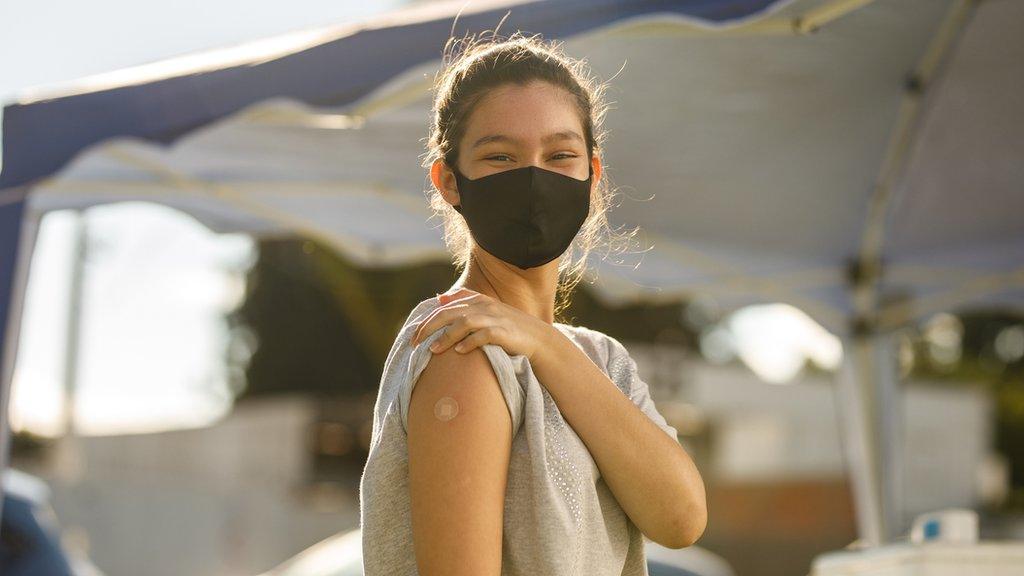
- Published5 January 2021
